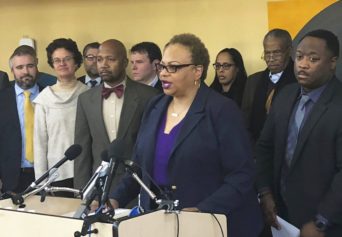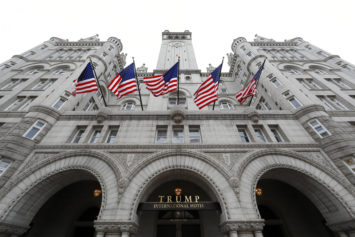
The action means that when voters in Texas start marching to the polls for early voting next week, the question is still unresolved whether they will need to show identification in order to cast a ballot.
The Justice Department jumped into the case after the U.S. Court of Appeals for the 5th Circuit late Tuesday issued a stay of a ruling by U.S. District Judge Nelva Gonzales Ramos of Corpus Christi. Ramos ruled last week that the Texas law had been written with an “unconstitutional discriminatory purpose.”
The three-judge appeals panel said it was following the direction of the U.S. Supreme Court, which it said has warned against instilling confusion by changing voting rules too close to an election. Last week, the Supreme Court blocked Wisconsin from implementing a law requiring voters to present photo IDs because it was too close to the election. The appeals court said the “value of preserving the status quo” trumped other considerations.
But in Wisconsin, preserving the status quo meant protecting access to the ballot for hundreds of thousands of voters, while in Texas the appeals court reinstated a new status quo that could keep as many as 600,000 voters from casting a ballot because they don’t have the proper ID.
These court battles come a week after the nonpartisan Government Accountability Office issued a report finding that states that toughened voter ID laws saw steeper drops in voter turnout than those that did not — with young and African-American voters affected the most. To many observers, that is exactly the intent of the new laws passed by Republican legislatures in 34 states in recent years.
Under the Texas law preserved by the appeals court, college student IDs aren’t accepted by poll workers, but concealed handgun licenses are. In addition, although free voting IDs offered by the state require a birth certificate that costs as little as $3, the Justice Department claimed that traveling to get those documents imposes an outsized burden on poor minorities. Texas has issued just under 300 free voter IDs since the law took effect while the state of Georgia has issued 2,200 voter IDs under a similar program, which opponents of the law said demonstrated that Texas wasn’t trying very hard.
In her ruling, Ramos, an Obama appointee, said the Texas law “creates an unconstitutional burden on the right to vote, has an impermissible discriminatory effect against Hispanics and African-Americans, and was imposed with an unconstitutional discriminatory purpose.” She said it “constitutes an unconstitutional poll tax.”
In its application to the Supreme Court filed Wednesday night, the Justice Department argued that Texas has known for nearly a year that a court decision in the case would be rendered close to the November election.
“Having been on notice for almost a year that a decision would be rendered close to this November’s election, Texas cannot now contend that it is injured, let alone irreparably so, by having to remind poll workers about past voting procedures with which they are already intimately familiar,” the Justice Department argued. “…the court of appeals acted on the basis of what it perceived to be a per se rule against changing any state voting procedure when an election is imminent. But no such rule exists, and the court of appeals clearly and demonstrably erred in failing to apply the established stay factors. When those factors are properly applied, Texas cannot show that a stay is appropriate under the facts and circumstances of this case.”

